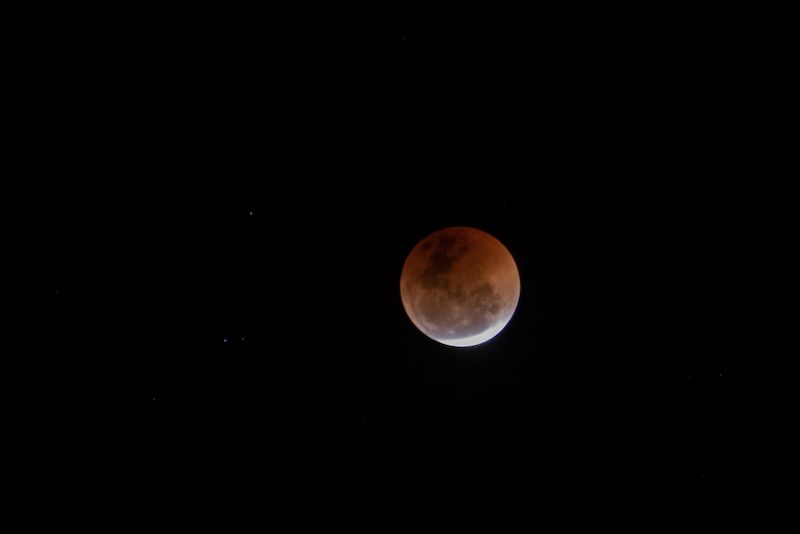

A total eclipse of the moon is going to take place tonight, going on into the early hours of Monday morning.
The Moon will start to enter the Earth's shadow at 02:35, but by 03:30, people should really be able to notice it with the full coverage expected from 04:40 to 05:43.
The Moon will leave the umbra at 06:50, and the penumbra at 07:49. David Le Conte from the Astronomy Section, La Societe Guernesiaise, said: "If you want to watch just the main part of the eclipse we suggest any time between 04:30 and 06:00. The Moon will be in the west part of the sky.
"When totally eclipsed the Moon will not disappear completely but may take on a dark, deep red colour. This is caused by sunlight passing through the Earth’s atmosphere and illuminating the lunar surface – essentially a projection on the Moon of the red sunrise and sunset glows around the Earth. The degree of darkness of the lunar disc during the eclipse is affected by the amount of dust and cloud in our atmosphere. So, for example, a volcanic eruption on the Earth can result in the eclipse appearing darker than usual.
"In a really dark sky the blood-red eclipsed Moon can be a beautiful sight in binoculars. And this eclipse coincides with a ‘supermoon’, the Moon appearing larger than usual because its oval orbit has brought it closer than normal."
The two stars to the right of the eclipsed Moon are the heavenly twins, Castor and Pollux, in the zodiac constellation Gemini, Mr Le Conte added.
Given clear skies, members of the Astronomy Section of La Société Guernesiaise will be attempting photography of the various stages of the eclipse.
The next eclipse of the Moon will be a partial one on the evening of 16 July. We shall have to wait another three years before the next total lunar eclipse visible from here, in May 2022.
Pictured: An image of a previous lunar eclipse.
Comments
Comments on this story express the views of the commentator only, not Bailiwick Publishing. We are unable to guarantee the accuracy of any of those comments.